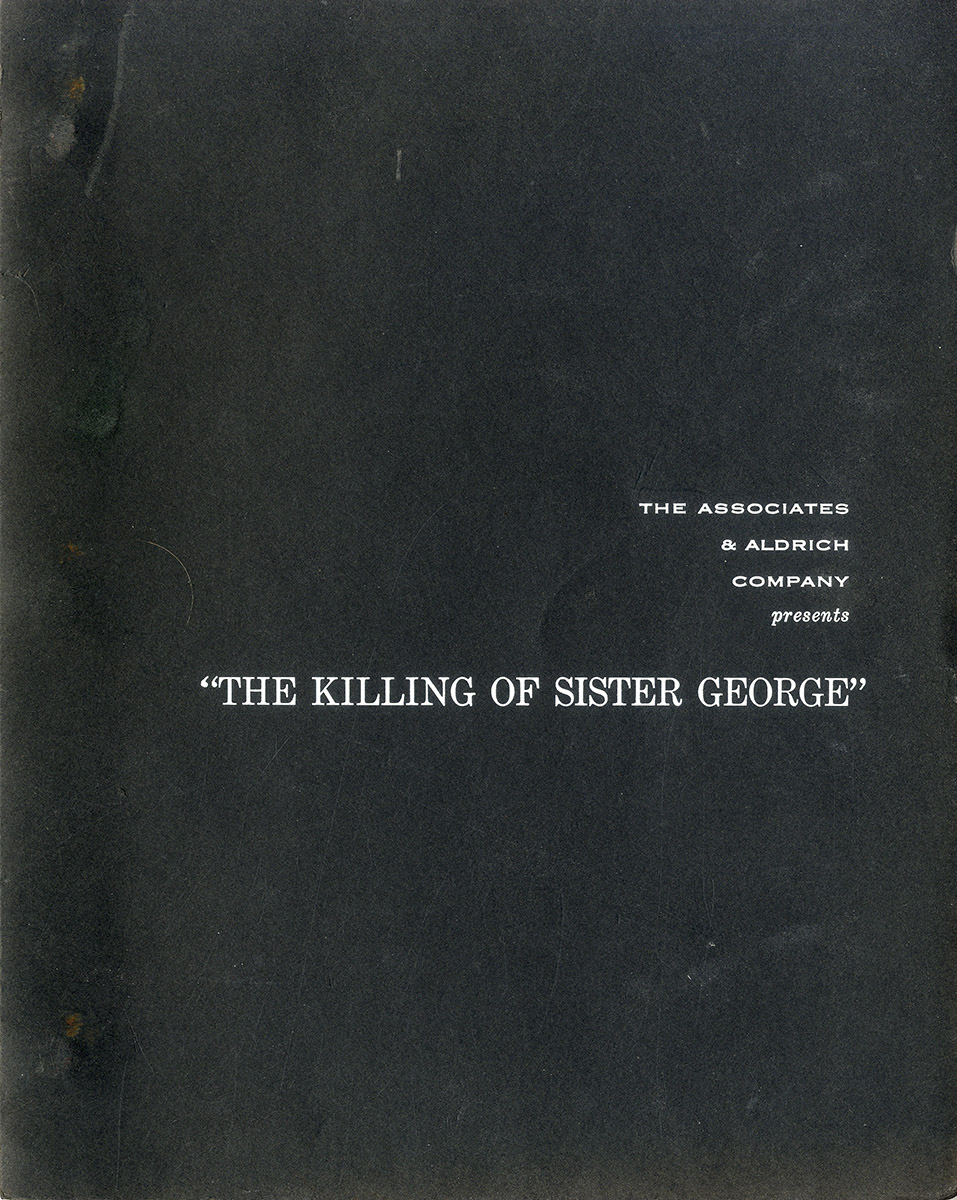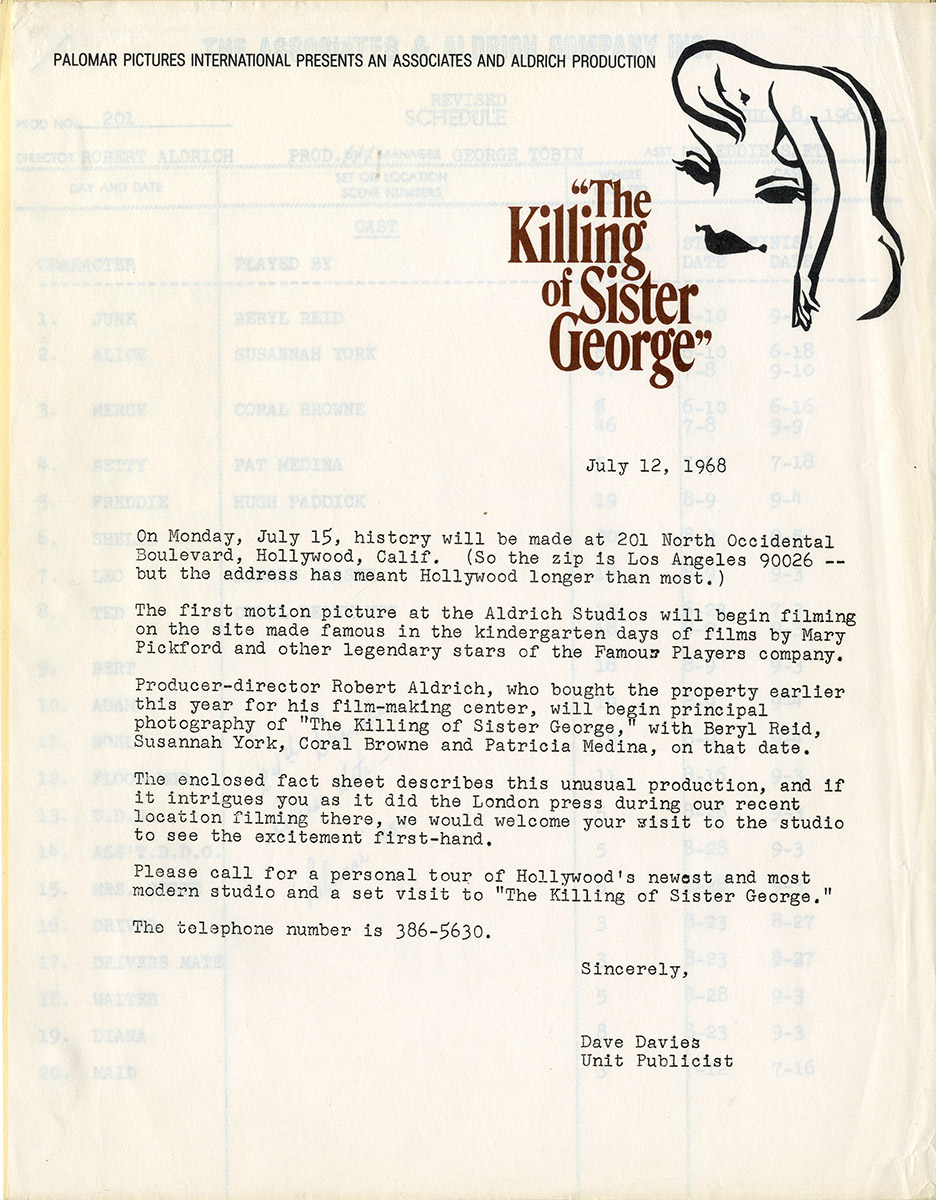KILLING OF SISTER GEORGE, THE (1968) Film script
[Hollywood]: Associates and Aldrich, 1968. Vintage original film script. Quarto, printed wrappers, brad bound, mimeograph, 144 pp. (with p. 85 accidentally included twice and p. 86 not present). Laid in is a 15 pp. shooting schedule and a publicity sheet on the letterhead stationery of the production company.
The Killing of Sister George is a groundbreaking motion picture, the first in Hollywood history to feature a butch lesbian protagonist. In 1968, it received an X-rating for its explicit lesbian content. Although the film has received much criticism for promoting negative lesbian stereotypes, it is nonetheless a landmark in lesbian portrayals in Hollywood film.
The protagonist, June Buckridge aka “George” (Beryl Reid), is a featured player in the BBC television soap opera Applehurst, in which she plays the sweet and lovable Sister George, a district nurse. Her television character is a far-cry from her real life personality: a foul-tempered, vulgar alcoholic who is obsessively jealous of her beautiful young flatmate, Alice aka “Childie” (Susannah York). A crisis is precipitated when June learns that the producers are thinking of killing off her long-running Sister George character. Things go from bad to worse after June is visited by network executive Mrs. Croft (Coral Browne), who turns out to be a closeted lesbian with designs on pretty Alice.
The film opens up Frank Marcus’ play quite a bit. We see June at home, drinking at the local pub, hurrying through London streets, visiting a friend and working at the studio, along with scenes from the television series in which she acts. Most remarkably, svelte Alice and plump June, costumed as Laurel and Hardy, attend a party at a gay nightclub with an all-girl rock band, and male and female couples dancing and enjoying themselves. While this was not the first time a gay bar or nightclub was depicted on screen, it was never before shown in such a positive light.
The Killing of Sister George’s most talked-about sequence is the penultimate scene showing Mrs. Croft’s physical seduction of Alice in June’s flat. Lasting more than five minutes on screen, it is indicated in the screenplay by less than six lines of verbal description. Apart from that, the movie tracks Heller’s 6/28 screenplay quite closely, with the usual trimming of dialogue and business and only one scene eliminated in its entirety, a brief scene where June meets with her agent.
This is a movie that works on several levels: as a black comedy, a show business satire, a sharp witty look at a dysfunctional relationship and, most importantly, as one of the first movies made anywhere to frankly depict an LGBTQ lifestyle.
In stock
Related products
-
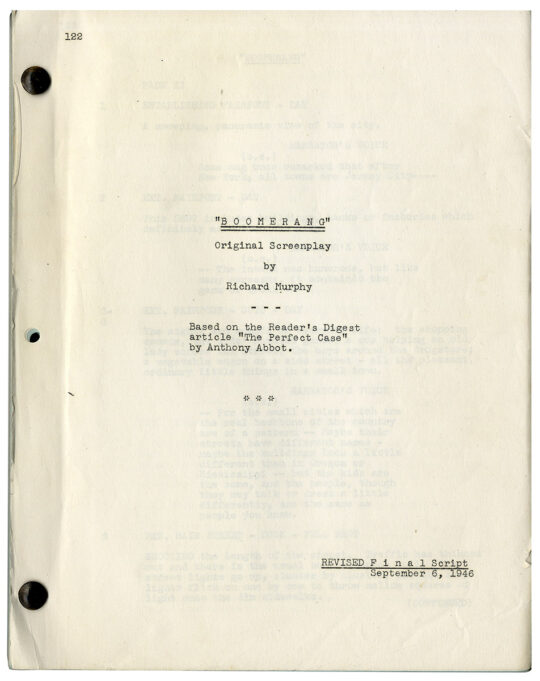
(Film noir) BOOMERANG (1946) Revised film script by Richard Murphy
$850.00 Add to cart -
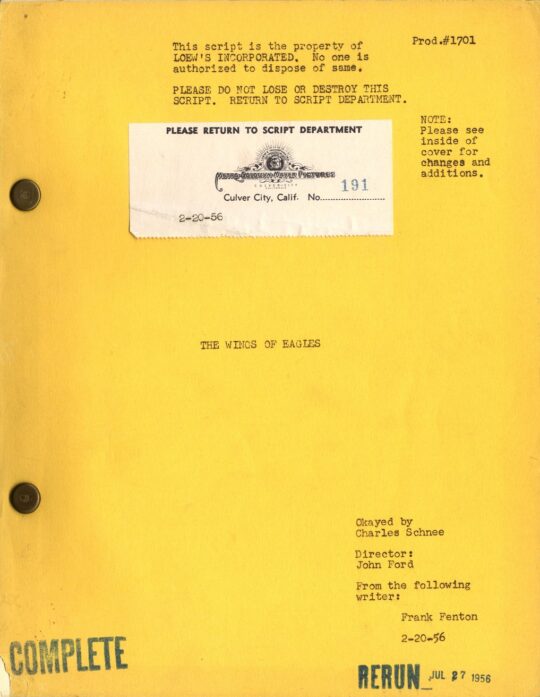
WINGS OF EAGLES, THE (1957) Two variant film scripts
$2,650.00 Add to cart -
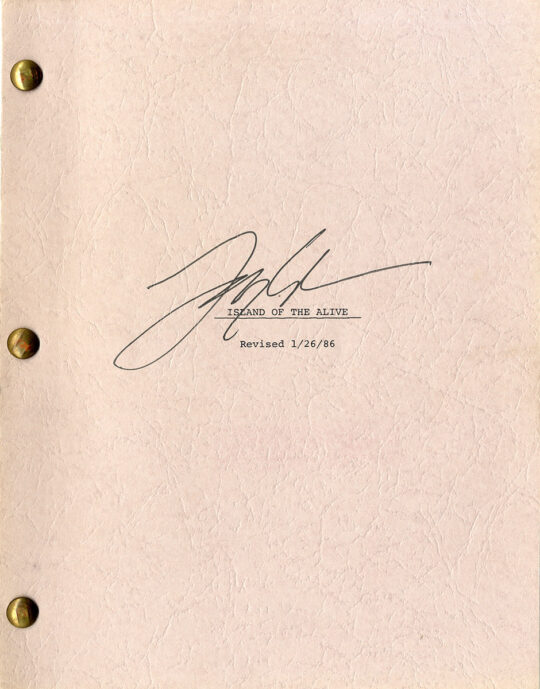
IT’S ALIVE III: ISLAND OF THE ALIVE (1986) Larry Cohen-signed archive
$650.00 Add to cart -
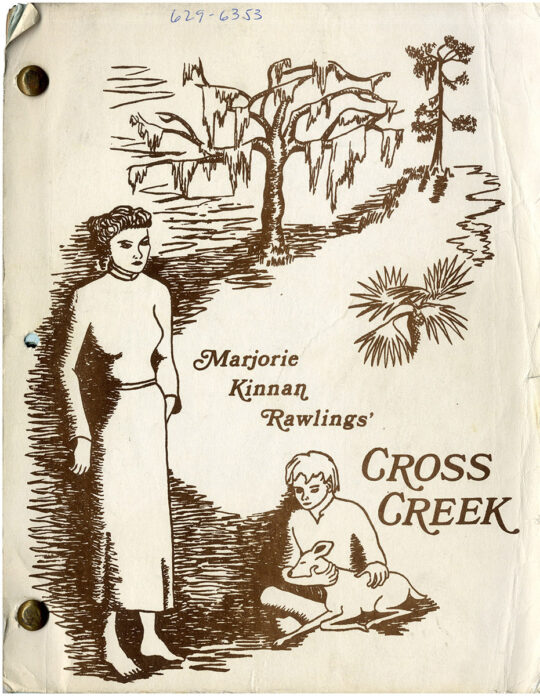
CROSS CREEK (Feb 9, 1982) Rev Final Shooting script by Dalene Young
$750.00 Add to cart

